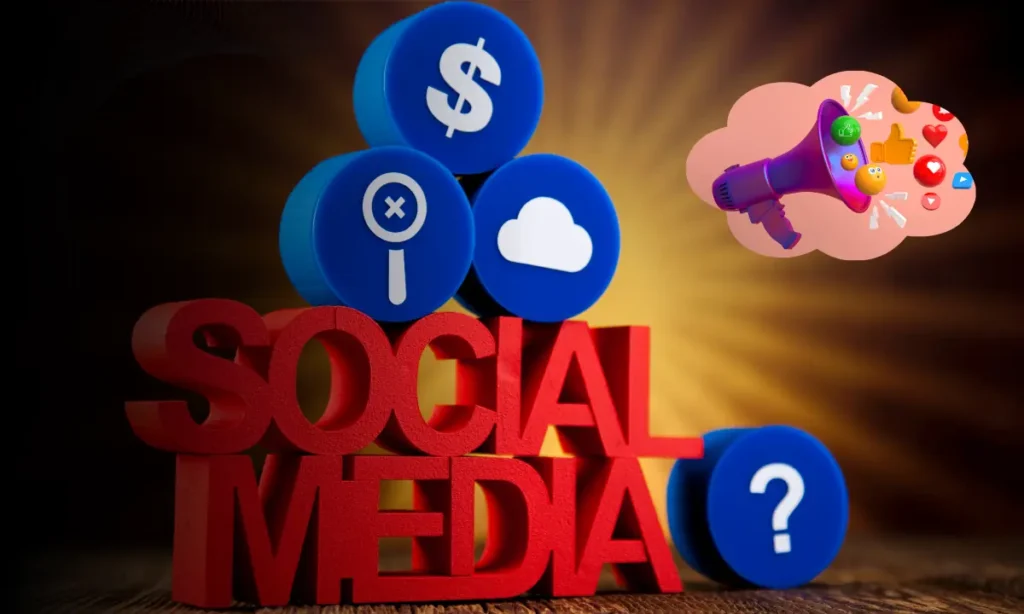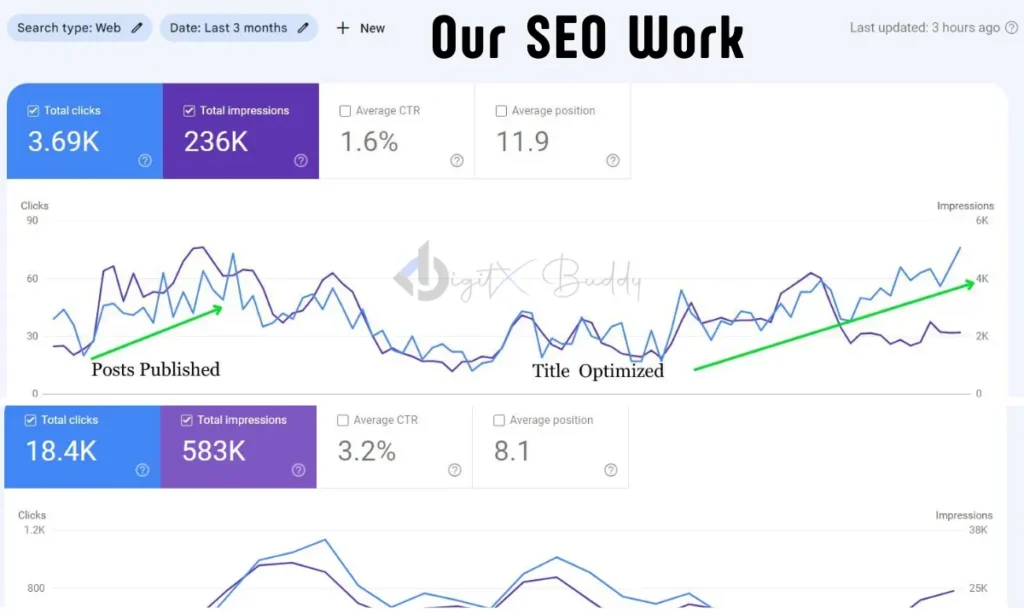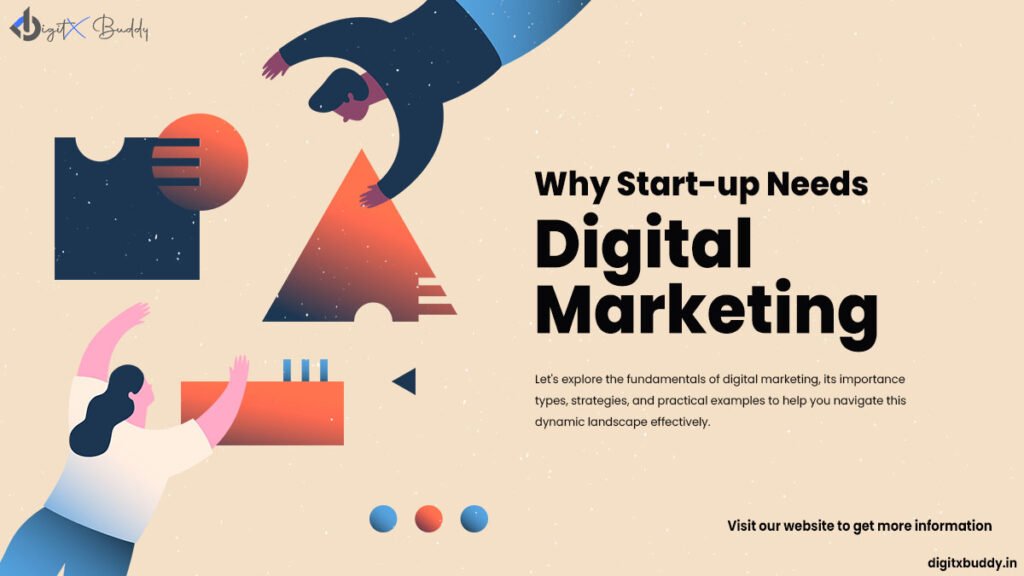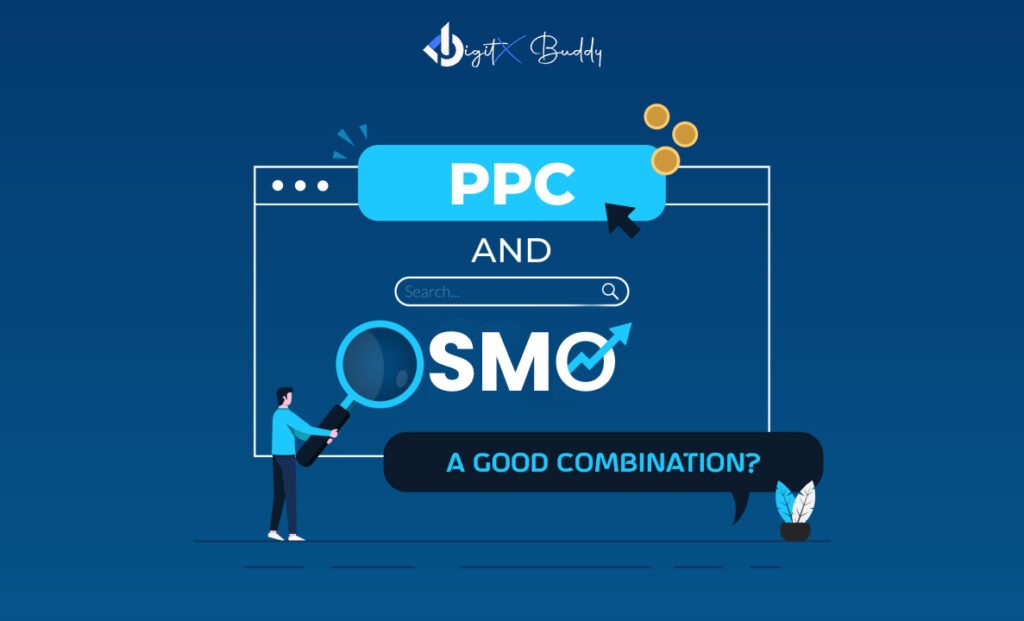Forget a time when only rich people could start a new business. It’s the 21st century, and in India, startups are booming with young minds and people of all ages.
Most startups begin with a unique USP, but they also face giant competitors in their industry. With clear and great marketing strategies, your startup can beat established businesses. Yes, it’s true that with proper and great marketing strategies, your brand can win over traditional brands and gain maximum visibility.
In this blog, we will look at digital marketing strategies for startups in 2025. We’ll cover every aspect of digital marketing, organic marketing, influencer marketing, content marketing, and how to leverage AI to grow your business faster than ever.
So lets begin journey to build the great marketing stargies for your starup in 2025.
1. Social Media Marketing
Social Media Marketing is an good way for startup to cath the maximum eyeballs with thier business/products. Social media marketing can create a buzz and awareness of your brand in less time if it done with the right approach.

Now social media marketing is not counting the number of follower and likes it is a way to create a commnity of people who are intered in your brand and talks about you and share you with other so that you got the maximum engagment from the users.
Reserachs shows that in todays time if you want to grow your business at sustabinable level your brand should be present at the social media platforms.
Howeever the real deal is finding perfect social media platform for your brand. Not every brand need to be presnet everyehre in the insitial days. It should be there where your potential cutsomers are maximum.
Here are the steps to grow your social Media
- What message you want to covey
- Find the idel Audience Persona
- Decide where Your Social Media Platforms
- Optimize the social media Profile.
- Start Creating content that align with your brand goals.
1. What message do you want to deliver?
Think about the message you want to share with your community and the story behind your brand. Ask yourself: how can your brand connect with people on social media?
As you already know your product and service deeply, you will naturally figure out the key message you want to send. If you find difficulty in it, you can use powerful AI chatbots to understand your goals and values.
Share the value that your startup delivers, and then start selling your services. If you begin selling without adding value, nobody will buy.
2. Find the ideal Audience Persona
This step is about figuring out who will be interested in buying your product or service. For example, let’s say we offer digital marketing services for businesses. Our ideal audience might look like this:
- Business Owners/Startup Founder
- Age: 25 to 65
- Gender: Male/Female
- Interests: Reading about marketing, startups, and people management.
Your audience persona can have many different factors based on your product or service. It’s important to be specific about who you’re trying to reach, as this will guide your marketing efforts.
3.Decide Your Social Media Platforms
Once you know who your ideal audience is, the next step is to think about where they spend their most time online. Which social media platforms are they most active on? For example, business owners/ professionals might be more active on LinkedIn, while younger audiences may prefer Instagram or TikTok. Choose the platforms where your audience is most likely to engage with your content.
4.Optimize the social media Profile.
Each social media platform is unique, so the way you set up and optimize your profile will be different on each one. Alogirthim of each social media is different. from each other so cracking the algorithim of social media is important to grow faster on it.
Make sure your bio, profile picture, and cover photo clearly represent your brand. Keep your messaging consistent and professional, and ensure that your contact details and website link are easy to find.
5. Start Creating content that align with your brand goals.
Now, it’s time to create content that reflects the values and goals of your brand. Show your audience how your products or services can benefit them. Think about the problems your product solves and how it can improve your audience’s lives. Focus on providing value through your content, whether it’s helpful tips, success stories, or behind-the-scenes looks at your brand.
You can also take a look at what your competitors are doing and assess how engaging their content is. This will help you understand what’s already out there. Think about how you can stand out by adding your own creative touch to showcase your product in a unique and compelling way.
2. Influencer Marketing
Influencer marketing is a new and effective way of promoting brands that emerged after the rise of social media. It’s a great way to increase brand awareness among your audience. Studies show that micro-influencers often offer a higher return on investment (ROI) compared to larger influencers.
Influncer Marketing helps build brand awareness, attract more visitors, and boost sales.
It’s a win for both the brand and the influencers. Brands can use influencers’ social media to connect with their audience, and influencers earn a share of the profits by promoting the products
Why you should use Inlfuncer Marketing
With so many digital ads and emails flooding our screens, reaching consumers has become harder. People often ignore traditional marketing methods because of the overload of advertisements.
- A study by Trackmaven found that influencer marketing is more affordable than other promotional strategies. It also revealed that 90% of people trust recommendations from friends and family, making it the most effective form of marketing. Influencer marketing came in second, just after word-of-mouth, in terms of trust for brands.
- Influencer marketing is a powerful tool for building relationships and raising brand awareness, and it’s easy to start. By following a few simple steps, you can dive into influencer marketing right away.
Now, the real question is how to find the best influencers for your marketing. Create a list of influencers in your industry who have significant followers to target your audience. Now reach out to them and offer for paid collaboration and Barter collaboration.
3. Content Marketing
Each product or services serve a solution to some extent, so you can create detailed guides, informational content in different formats such as blogs, short videos, forums on reddit, etc..
Every piece of content you create should provide value to your brand, whether it’s a blog post, infographic, or presentation. A solid content strategy is designed to align with the different stages of the buyer’s journey. This ensures that you produce content that is relevant and valuable to both potential and existing customers.
Content marketing is an effective digital marketing strategy for startups, helping to generate more content for your website’s blog and social media platforms. It also supports your SEO and social media optimization (SMO) efforts.
Here’s how content marketing benefits your startup:
- Boosts Brand Visibility: Regularly publishing valuable content helps your brand become more visible, reaching a larger audience.
- Strengthens Relationships: Content marketing allows you to engage with your audience, building trust and loyalty over time.
- Increases Brand Recognition: Well-crafted content helps your brand stand out in a competitive market, making it easier for people to recognize you.
- Enhances Credibility: Sharing insightful and informative content positions your brand as an expert, boosting credibility.
- Positions You as an Industry Leader: Consistently delivering valuable content can establish your startup as a thought leader in your industry.
In summary, content marketing not only boosts visibility and credibility but also plays a key role in attracting and retaining customers, making it a must-have strategy for startups.
4. Search Engine Optimisation
Search engine optimization (SEO) is an excellent way to position your brand in the market. It’s also known as organic marketing, and it’s one of the best ways to grow quickly without spending a lot of money.
Without SEO, you cannot build a strong brand that sustains over time. Google has the highest search traffic volume, and it changes rapidly. If your startup isn’t appearing on Google, you are losing potential customers to your competitors.

Without SEO, your online visibility could disappear. SEO helps you get free traffic from search engines without paying extra costs. When you start a blog, search engines can send visitors to your service pages, homepage, and landing pages. This means SEO allows startups to attract new customers at no cost.
Paid ads require money, whereas SEO is a low-cost marketing strategy that helps your brand grow organically.
Building a website and blog doesn’t automatically guarantee that you’ll appear on Google. You need to optimize your blog posts and service/product pages using the best SEO practices so Google can easily rank you.
As a premier SEO agency in Delhi, we understand how to rank websites and convert visitors into loyal customers. We drive real results.
Case Study: With the help of SEO, we’ve helped grow a consultancy business located in Faridabad. They are a startup with a limited marketing budget, so we suggested they focus on SEO. Thanks to our strategies, their business is now appearing on Google, and they’re attracting good customers daily.

With the help of SEO, any type of business, regardless of its industry, can be scaled effectively.
7 Benefits of SEO for a new startup
- High ROI and Cost-Effective: SEO helps you get more customers without spending a lot of money on ads.
- Long-Lasting Results: Once your website ranks well, it can continue to bring in visitors over time.
- Grow Your Audience Organically: SEO helps you attract the right people to your website without paying for traffic.
- Build Trust and Authority: Ranking high on search engines makes your brand look trustworthy and reliable.
- Improve Brand Reputation: Good SEO practices help establish your business as a reputable and respected brand.
- Reach More Potential Customers: SEO helps you get noticed by people searching for what you offer, expanding your reach.
- Better User Experience: SEO focuses on improving your website’s user experience, making it easier for customers to navigate and engage with your business.
We have a detailed guide on how your startup can benefit from SEO.
5. Search Engine Marketing
Google is the biggest search engine in the world, holding 90% of the global search market, which means it dominates the search field. If you’re looking for quick results for your startup, creating a strategy for Google Ads—also known as Search Engine Marketing (SEM)—can be highly effective. With Google Ads, you can target your audience instantly, drive traffic to your website, and see measurable results quickly.
Unlike traditional marketing, where results can take time to show, SEM provides immediate visibility on search engine result pages (SERPs). This allows your startup to appear in front of potential customers exactly when they’re searching for services or products you offer. Additionally, Google Ads allows you to set a flexible budget, making it easier to control costs and adjust your strategy as you learn what works best for your business.
By using Google Ads, you can not only attract traffic but also optimize your ad campaigns over time based on valuable insights and data, ensuring your marketing efforts are continually refined for better performance.
One of the best digital marketing strategies for startups to see immediate results is SEM (Search Engine Marketing). By advertising on search engines, your startup can gain more exposure and drive sales.
- Results are instant.
- It’s easy to reach your target audience.
- You only pay when someone clicks on your ad.
- You can start with a budget as low as 1000 Rs/day and stop at any time.
- Detailed data and insights will help improve your SEM campaigns and other marketing strategies.
However, SEM budgets can quickly be used up. To get the best results, a successful SEM campaign requires expertise and experience. Therefore, as part of a digital marketing strategy, SEM can be challenging for startups. It’s best to start with a small budget and take your time to learn and optimize your campaigns.
6. Create a Google Business Profile (GBP)
As a startup, since customers don’t know you well yet, there’s a high chance they’ll look you up online before deciding to do business with you. Therefore, as part of your digital marketing strategy, you should consider creating a Google Business Profile for your company.
Startups often overlook the value of local searches, but at the initial stage, you can’t afford to ignore them. Local searches help establish trust in your brand. Before making a purchase, people often search Google for information about a company. If your Google My Business (GBP) profile appears with good reviews, your credibility increases, and potential customers are more likely to trust your brand. People tend to Google everything before making any purchase decision.
7. Email Marketing
Email marketing is one of the most important and cost-effective ways to grow a startup, with the highest ROI (Return on Investment) of 400%. This means that for every ₹1 you invest, you get ₹40 back. Because of this, email marketing is a powerful digital marketing strategy for startups.
Since you’re just starting out, here are three simple tips to help you begin with email marketing:
- Offer beta testing for your products or services to grow your email list at the same time.
- Build your email list by offering free trials, demos, reports, or e-books.
The best way to create a large contact list for Email marketing create helpful content and offer free kinds of stuff in exchange for email addresses.
8. Affiliate Marketing
Influencer marketing and affiliate marketing go hand in hand, both relying on people’s influence to drive sales. That’s why affiliate marketing, an important digital marketing strategy for startups, should be part of your influencer campaign. The goal of an affiliate program is to attract leads for your brand. Affiliates act like salespeople, earning a commission based on the sales they generate. You decide how to pay them—either by the sales they make or a fixed payment per product.
Affiliate recruitment software is a great tool for finding and signing up affiliates. It automates much of the process, making it easier to find affiliates that align with your brand. To track sales, you provide affiliates with special affiliate links. These links can be shared on their social media, allowing their followers to visit your site and make purchases through the link.
8. YouTube Marketing
We all know Google dominates search. But did you know YouTube is the second largest search engine worldwide? In India alone, it boasts over 265 million active users. That’s a massive, untapped audience for brands. Yet, many startups overlook YouTube in their marketing strategies.
A well-executed YouTube campaign can deliver exceptional results; just look at the success stories of Physicswallah, Unacdemy, Nichehair, Flipkart, Hyundai, Asian Paints, and Pepsi. Isn’t it time you leveraged YouTube’s power?
10. Get The Help Of Automation Tools
AI tools can be game-changers for startups, offering innovative solutions that drive growth and efficiency. By automating routine tasks, improving customer engagement, and providing data-driven insights, AI helps startups scale quickly while reducing costs. Leveraging AI can accelerate decision-making, streamline processes, and enhance the overall customer experience, giving your business a competitive edge. Here’s a list of AI tools that can help startups:
- ChatGPT – Use AI for customer support, content creation, and personalized communication.
- HubSpot – Leverage AI-powered CRM to automate lead management, track customer interactions, and optimize marketing campaigns.
- Jasper – AI writing assistant to generate blog posts, ads, and social media content efficiently.
- Zapier – Automate workflows and connect apps to streamline repetitive tasks.
- Grammarly – Enhance written communication by improving grammar, tone, and clarity with AI.
- Surfer SEO – Use AI to optimize website content for better search engine rankings.
- Loom – Create AI-powered video messages for better engagement with clients and teams.
- Copy.ai – Generate high-converting copy for ads, emails, and product descriptions.
To grow your business faster, integrate these AI tools into your daily operations. Automate customer interactions, analyze data for actionable insights, and focus on personalized marketing strategies—all while saving time and resources. AI allows you to stay ahead of the competition and scale your startup more efficiently.
Conclusion
Building a successful startup in 2025 requires a smart and well-planned digital marketing strategy. By leveraging social media, SEO, influencer marketing, and automation tools, startups can establish their brand, attract customers, and compete with industry giants.
The key is consistency, adapting to trends, and making data-driven decisions. Implement these strategies to grow your startup and create a strong digital presence!
Which digital marketing strategy has worked best for your startup? Share your thoughts in the comments below!

